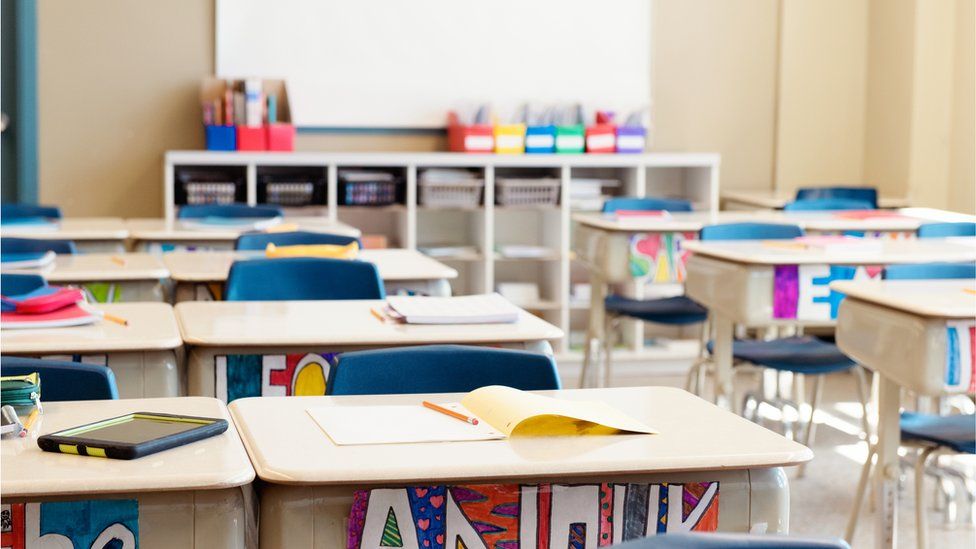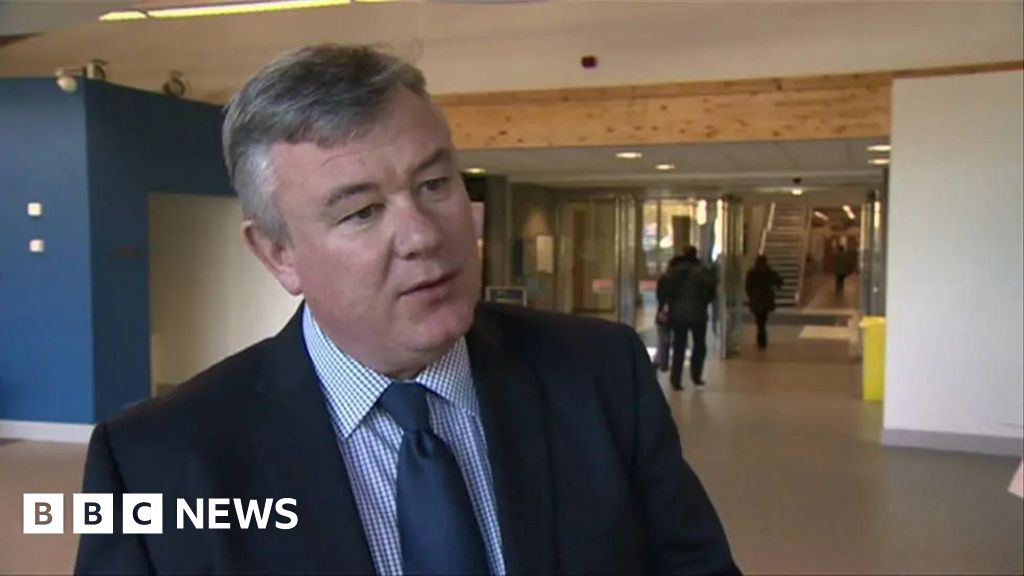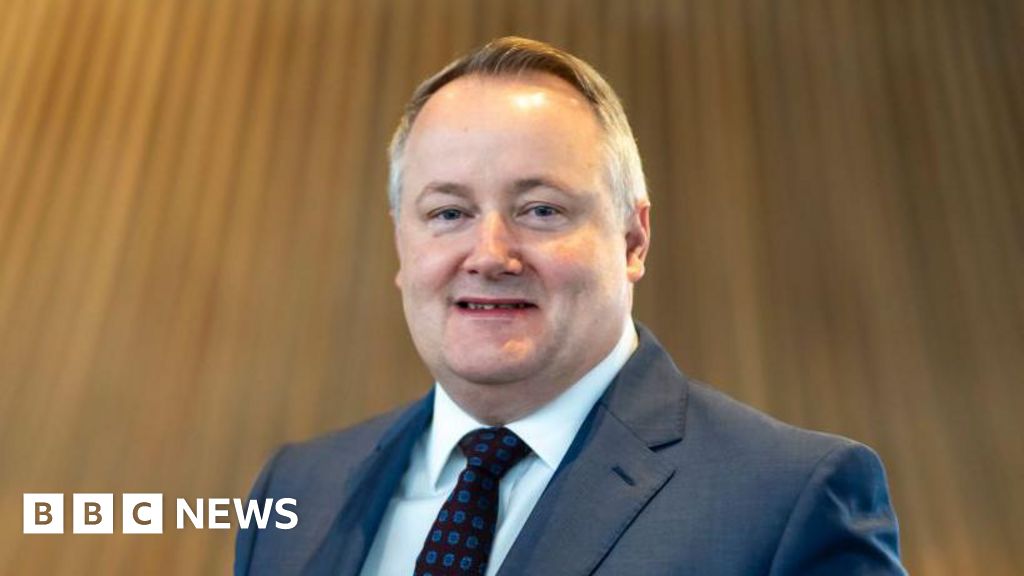ARTICLE AD BOX
 Image source, Getty Images
Image source, Getty Images
More than one out of every five children in England are persistently absent from school
By Marthe de Ferrer and Branwen Jeffreys
BBC News
The Labour Party says it will make tackling poor school attendance a top priority if it forms the next government.
Shadow education secretary Bridget Phillipson will set out a range of measures later.
The plans include using artificial intelligence to spot trends in absence.
This week, the government promised to extend the existing attendance-hub scheme to support a thousand more schools in England.
Labour's plans are being backed by Sir Kevan Collins, who resigned as the government's education catch-up tsar after failing to secure the funding he wanted.
Department for Education (DfE) data shows more than one out of every five children in England are persistently absent from school - double the proportion before the Covid pandemic.
Persistent absence means missing at least 10% of school days - about four full weeks from the academic year.
A Centre for Social Justice (CSJ) report this week suggested more school sport could help but also found some parents thought children did not need to be in school full time.
The DfE says parents have a duty to ensure children attend school.
- a register for home-schooled pupils, to track those not in mainstream schooling
- free breakfast clubs for all primary-aged children in England
- Ofsted reviewing absence as part of annual safeguarding spot checks
- using AI to spot trends in absence, linking with existing records in other services such as social care
- more mental-health support in schools
- giving schools more funding for early speech-and-language interventions
Ms Phillipson says a Labour government will make education its priority.
"For each of us, and for all of us, background must be no barrier to opportunity," she will say.
Image source, Reuters
Image caption,Bridget Phillipson will lay out Labour's plans to tackle persistent absence
Sir Kevan highlighted the impact of the pandemic on school absence and educational attainment, calling the current situation "a real crisis".
"Covid has cast a long education shadow and unfortunately, for some children, they're still suffering the consequences of learning loss," he told BBC News.
He was supporting Labour's plans as "there's a very serious endeavour to get a hold and a grip on some of these issues".
And he emphasised the "clear evidence" in support of breakfast clubs improving attendance.
"We need serious action," Sir Kevan continued.
"All too often, the response to the pandemic has been piecemeal and, in my view, half-hearted."
'Maxed out'
Boris Johnson appointed Sir Kevan in February 2021, to advise the government on helping England's schools recover and create a long-term plan to help students catch up on learning after the pandemic.
"I'm a Labour Party sympathiser but I was happy and honoured to go and support a Conservative prime minister," Sir Kevan said.
"We all had to stand up and do our part."
But he resigned a few months later, after the government allocated £5bn in funding, rather than the £15bn he had advised.
"The phrase that was used was that we were 'maxed out on recovery' - and I don't think we ever maxed out on recovery," Sir Kevan said.
"We left schools too often on their own to resolve this.
"For too many children in our most vulnerable communities, we failed them and let them down."
'Best start'
On Monday, the government announced £15m worth of investment over three years to address school attendance issues.
The DfE promised 18 new attendance hubs - bringing the total to 32 across England - providing tailored support to pupils at 2,000 schools, up from 1,000.
The government also plans to provide more targeted and intensive support to more than 10,000 severely absent students and their families.
Education Secretary Gillian Keegan called attendance issues her top priority.
"We want all our children to have the best start in life because we know that attending school is vital to a child's wellbeing, development, and attainment," she said.

 1 year ago
43
1 year ago
43








 English (US) ·
English (US) ·